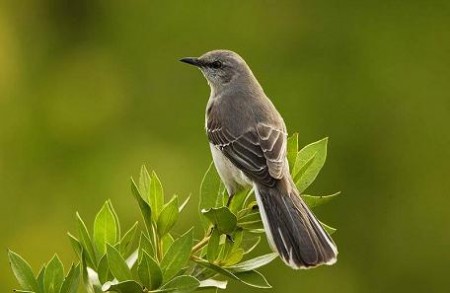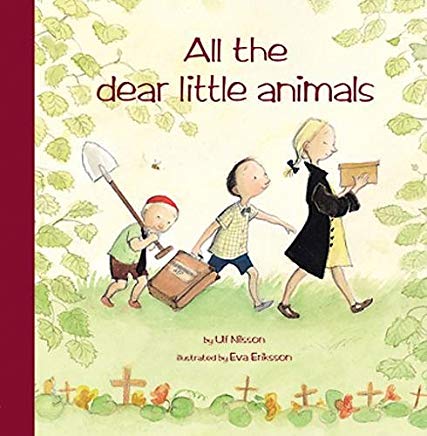The Blog
Blog Entry
Eternity Now

Right now I’m about halfway through To Kill a Mockingbird with my nine-year-old, which I guess you probably remember for the irreproachable Atticus Finch, or spectral Boo Radley, or even Tim Johnson, the frothing, rabid dog who meets his death in agonizing slow motion, still what’s surprising to me now – and brings a smile to think of it – is just how much of this book is spent whittling away the Alabama summer. On dares, and costume dramas, in tree houses, and collard patches where you’re not supposed to be, fantasies growing more and more baroque until the sound of grown-up voices comes reeling you back in.
Sometimes those voices become your own. In All the Dear Little Animals by the great and effortlessly inventive Swedish storytellers Ulf Nilsson and Eva Eriksson, there are no adults to interfere, and it takes a single potentially desultory summer day for three children to dream up an undertaking that makes all the Boo Radley shenanigans look faint-hearted by comparison. Funerals Ltd. starts whimsically enough when the kids find a dead bumblebee and decide it merits a proper burial, though as the animals and the enterprise grow irresistibly larger, what was a game played with poems and props becomes an altogether less manageable thing.
No, don’t walk away! I know death is not a subject we are in the habit of broaching whimsically, or scientifically, or metaphysically, or really any way to our children, but this story manages to cover all of those bases and more, without ever feeling like anything less than an adventure. In part this is attributable to the very different personalities here, starting with Esther, the oldest, who may as well be a stand-in for every straight-talking Scandinavian who’s lately collaborated on a picture book. Esther’s pretty fearless, on the face of it. As for Esther’s little brother Puttie, he is almost nothing but fears, once he has vaguely figured out what they are up to. Which takes a while:
“We looked in bushes, under trees, and out in fields, but there weren’t many dead things around…. Puttie helped, but we didn’t tell him what we were looking for, so he didn’t find anything. But he was so small it didn’t matter.”
“What’s it doing, lying there?” asks Puttie when they finally find a mouse, the first of many anxious questions – “Me too? But Mum will be so sad…” – you’re probably going to need to answer sooner or later as a parent. Unless you are someone with sufficient acreage for the children to roam around in and discover secret clearings and dig holes, and unless there is anyway time in the summers between tennis camp and drama camp and test preparation.
Oh, and unless there is also a poet handy:
“I’m a good writer, because I think a lot and there are lots of words inside me,” says the “I” in this story – a boy between Esther and Puttie in age, and in confidence, who nevertheless succeeds in speaking for every poet and author who ever lived. He starts out writing simple limericks for eulogies – “A dear little life in the hand / Suddenly gone, deep in the sand, ” “Little fish in a dish. Life is not always / Quite what you wish” – but ends up composing such tributes that even the matter-of-fact Esther cannot deny the tears in her eyes, but I’m not going to spoil it for you, okay, I will:
“Your song is finished. Life is gone.
Your warm body grows cold and it’s getting dark.
In the darkness you shine like a star.
Thank you for being alive!”
A blackbird sings. The moss still grows. Tomorrow we’ll find something completely different to confound us, and the next day, hopefully, after that.

